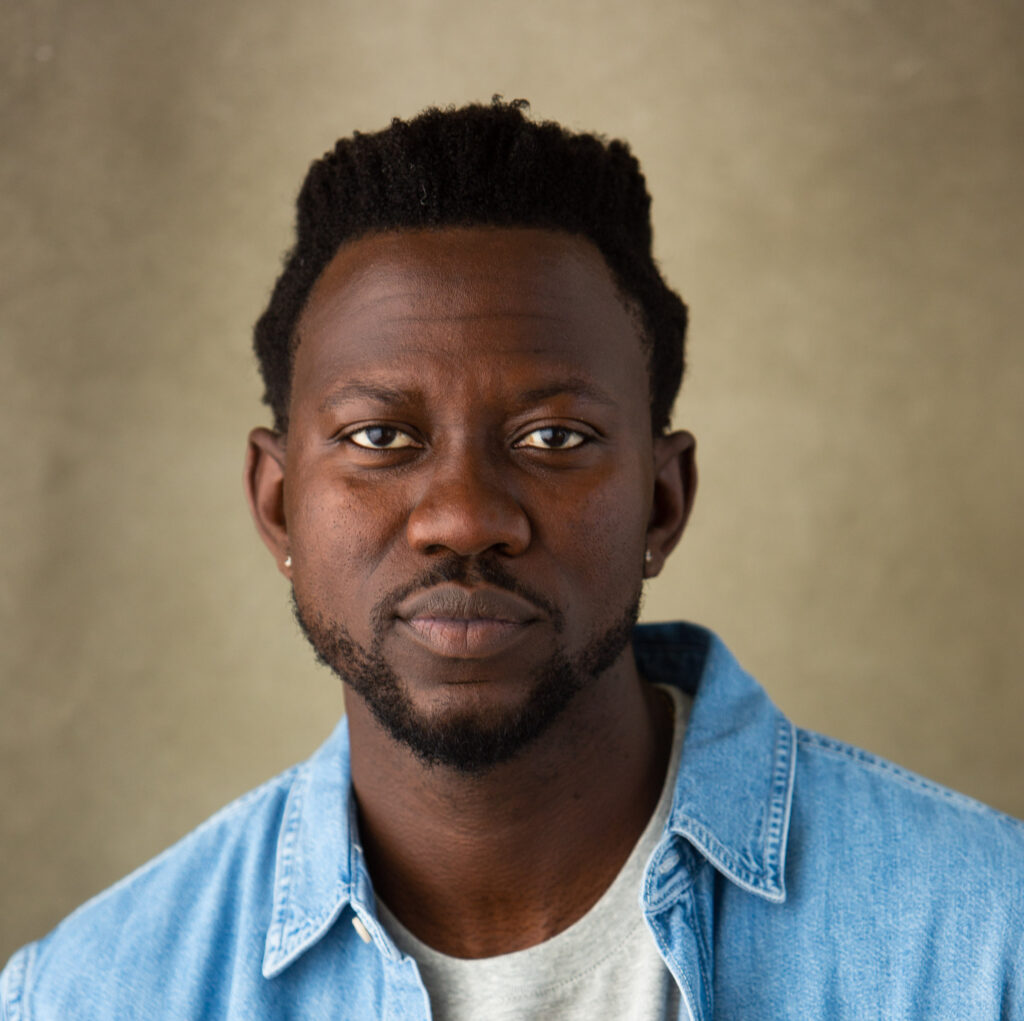The rebellion and civil unrest that we are seeing today is not new.

The civil rights and social movements that happened globally in the sixties were spurred by the growing inequalities and injustice in the world.
The oppressive consciousness that existed then still remains today.
Finding purpose lies at the intersection of what we want to see (more of) in the world, what we are good at, and the things that we are interested in.
We don’t have to look too far in the past to understand what we collectively want as humans. Let’s start by recognizing what doesn’t work and how rebellion is in some cases a precipitate for purpose.
Rebel? Against What?
During these times of great inequality and injustice, artists and activists spoke up and faced authorities head-on.
These activists were labeled “rebels”, but exactly what were they rebelling against?
I wanted to know exactly who defined this collective group of rebels and why — a topic that I touch on in my book — PRESS PLAY.
Could these rebels have contributed to social change by means of acting as a voice for the voiceless?
In 1997, when I was only ten years old, I saw the power music had on a group of people. After sitting in my dad’s office on a late afternoon in Lagos Island, we left for Tafawa Balewa Square for the lying in state of the then recently-deceased Afrobeat legend, pioneer, and musician Fela Anikulapo Kuti.
At the lying in state, I was surprised and fascinated by the amount of people who showed up to pay their final respect to Fela Kuti. There were people of different classes, all in the same place.

The line was so long that we didn’t get a chance to see him. Afterward, I became fascinated with his music and began listening to more of his songs and albums. The older I got, and the more I listened to him, it became evident why so many people were there that day.
Demo-Crazy
Nigeria gained its independence from British colonial administration in 1960. Soon after, the young country delved into a civil war — the Biafra War. The scars of tribal rage and segregation still exist today. After the war, the Nigerian governance system was plagued with coups that led to a series of oppressive military rule and dictatorship.
Fela saw this hot-off-the-press country transition from British colonial rule through independence to an oppressive military regime. He used his music to speak against colonial and postcolonial administration.

In speaking about his song “Teacher Don’t Teach Me Nonsense,” in which he questions the accepted norm of the African political system post-colonization, Fela explained, in an
Interview, how he used his music as a means to attack and rebel against the current system:
“Now I mentioned democracy,” Fela continued his explanation with a cheeky smile on his face. “In English, an English man will say demo-cracy, but if the African man wants to say it in broken English he will say Demo-cree-cy. I now thought of the word and I said demo-crazy. Now I saw craziness and I said I could now let my people see that democracy is not really that word. That it is really madness. Now I started to sing, I started to think of this word democracy — Crazy demo, demonstration of craze, crazy demonstration. Then I went a little serious because I knew that people would laugh at that. Then I continued — if it’s not crazy, then why is it that in Africa as time goes forward things are getting worse?”
The well-educated Fela knew the importance of humor and bringing down ideas to a very relatable form to get through to the masses.
Fela gave a voice to the sentiment of a lot of Nigerians — sentiments most Nigerians felt but could not express, either because they did not have the same eloquence to get the message across or because they were scared for their lives to speak against the system.
Fela was relentless in his opposition despite multiple stints of imprisonment and physical attack to his life and that of his family.
“Do we all have that gene to speak against the social convention while putting ourselves at risk?”
Mama Africa
While Fela spoke against the oppressive system of a postcolonial independent Nigeria, 7,000 kilometers south, musicians in South Africa were singing against an oppressive apartheid system.
Apartheid, “apartness,” was a system of institutionalized racial segregation that existed in South Africa and Namibia. It was characterized by an authoritarian political culture based on baasskap, a word that literally translates from Afrikaans to English as “boss-ship.”
As lawmakers legalized the disenfranchisement of the majority population of South Africa based on skin color to preserve economic advantage for the minorities making and enforcing the laws, musicians, poets, and civil rights activists fought back.
Among these artists was Miriam Makeba, fondly referred to as Mama Africa. The South African singer, songwriter, actress, and civil rights activist was one of the most visible opponents of the regime. Her music, although not overtly political, was not accepted by the South African government and authority.

As she developed her music career in the United States, she was exiled, and her music was banned in South Africa.
Emphasizing the depth of the oppressive regime in South Africa, Miriam Makeba related a story about the authority’s effort to control the perception, media, and narrative within the country. Authorities are adept to the power of using words and stories to control people.
“They learned about a book called Black Beauty,” Mariam said,“and banned it, they didn’t even know it was about a horse.”
Banning a book called Black Beauty was a deliberate effort to make sure a group of people of a certain complexion did not find things that would made them feel empowered.

The authorities were strategic because they understood the people who do not feel empowered can continue to be dominated. These musicians provided the sonic landscape to explore counter ideologies.
JAMMING
Across the Atlantic Ocean, in an island country of Jamaica, during the seventies and eighties, a new genre of music had been brewing called reggae, and it was going across the shores of Jamaica and gaining global traction.
Bob Marley & The Wailers were one of the main pioneers of reggae music. On December 3, 1976, there was an assassination attempt on Bob Marley and the residents of his home and recording studio.
The political climate in Jamaica had been increasingly deteriorating with escalated violence between loyalist gangs of the two opposing political parties.

Two days after he got shot in his chest and arm, Bob Marley performed, against the advice of close confidants, at the One Love Peace Jamaica Concert.
Undeterred, with visible bandage from gunshot wounds, Bob Marley and his crew extended their one-song performance into a ninety-minute medley of their top songs that climaxed with the appearance of leaders of both opposing parties seen together hand-in-hand for the first time.
A display of unity that had never been achieved before, even through political perseverance or international intervention, was achieved with music’s unifying power.

The divide and the music it inspires
Despite imprisonment, forced exile, or assassination attempts, each of these musicians used music to fight against an oppressive system. A system the mainstream media emphasized and justified as correct.
The everyday person either fit into the system or would immediately be at a disadvantage through economic disenfranchisement, loss of freedom, and sometimes, unfortunately, loss of life.
When asked about why he performed after the assassination attempt on his life, Bob Marley responded,
“The people who are trying to make this world worse aren’t taking a day off. Why should I?”
These socially conscious musicians were undeterred in their conviction and used their gifts of musicianship to speak against the status quo and to make accessible the voices and viewpoints of the common people otherwise neglected.
Start with questioning
Despite the consequences, these activists used their music to speak against police brutality, apartheid boss-ship, social injustice, military oppression, colonial exploitation, all of which were the accepted mainstream “whats” of their time.
Do we all have that gene to speak against the social convention while putting ourselves at risk?
This moment in time has given us an opportunity to take a break, slow down, and re-think what we want to do with our limited time on this earth.
What are the things in your life right now that you are willing to risk to get what you really want?
Are you ready to give up your status, income, or comfort to do purposeful work?
Are you willing to let go of the validation that you have grown to seek in order to improve the awareness of who you really are?
You may not have a glaring opponent or a system that’s holding you back but you can rebel against anything that does not make you feel like your full self.
You can start identifying the things that do not bring out your full humanity or give you a complete sense of dignity and start eliminating them from your surroundings and even better speaking up against it .
Knowing yourself, embracing your full self, and being here could be your purpose and rebellion against the “what” that’s holding you down, could be the first step towards living a purposeful life.


